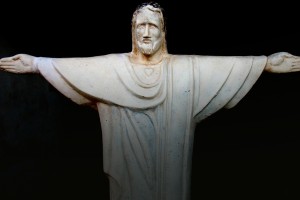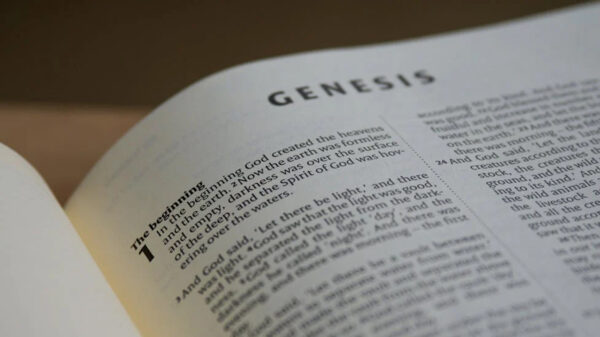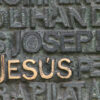
Jesus is God: He Created Us
The apostles John and Paul described Jesus as the creator God who came to us in human form
In the beginning was the Word, and the Word was with God, and the Word was God. He was with God in the beginning. Through him all things were made; without him nothing was made that has been made. In him was life, and that life was the light of men…The Word became flesh and made his dwelling among us. We have seen his glory, the glory of the One and Only, who came from the Father, full of grace and truth. (John 1:1-4, 14)
He is the image of the invisible God, the firstborn over all creation. For by him all things were created: things in heaven and on earth, visible and invisible, whether thrones or powers or rulers or authorities; all things were created by him and for him. He is before all things, and in him all things hold together. (Colossians 1:15)
Jesus is God: He Came to Us
The apostle Paul described Jesus as God Himself, appearing to us in bodily form:
For in Christ all the fullness of the Deity lives in bodily form, and you have been given fullness in Christ, who is the head over every power and authority. (Colossians 2:9-10)
Beyond all question, the mystery of godliness is great: He appeared in a body, was vindicated by the Spirit, was seen by angels, was preached among the nations, was believed on in the world, was taken up in glory. (1 Timothy 3:16)
Your attitude should be the same as that of Christ Jesus: Who, being in very nature God, did not consider equality with God something to be grasped, but made himself nothing, taking the very nature of a servant, being made in human likeness. And being found in appearance as a man, he humbled himself and became obedient to death- even death on a cross! (Philippians 2:5-8 )
Jesus is God: He Spoke to Us
The writer of Hebrews described Jesus as God, who revealed Himself to us through His very words:
In the past God spoke to our forefathers through the prophets at many times and in various ways, but in these last days he has spoken to us by his Son, whom he appointed heir of all things, and through whom he made the universe. The Son is the radiance of God’s glory and the exact representation of his being, sustaining all things by his powerful word. (Hebrews 1:1-3)
Jesus is God: He Reigns Over Us
The writer of Hebrews also described Jesus as sitting on the throne of Heaven, anointed by God the Father:
But about the Son he says, “Your throne, O God, will last for ever and ever, and righteousness will be the scepter of your kingdom. You have loved righteousness and hated wickedness; therefore God, your God, has set you above your companions by anointing you with the oil of joy.” (Hebrews 1:8-9)
I often talk about the New Testament “Chain of Custody”: the sequence of proclamations from the apostles and early church fathers that establishes the evidence trail related to Jesus, from His ministry on earth to the early Church councils that ultimately established the Canon of Scripture. As a skeptic, I was surprised to find that the earliest document evidence we have related to Jesus describes Him as a miracle worker who claimed to be God and rose from the dead. In the earliest documents, Jesus was worshiped as God, displayed the power of God, and spoke as though He were God. The writers of Scripture were quick to describe Jesus as more than a simple, wise teacher; they described Him as the Christ. The writers of Scripture were quick to describe Jesus as more than a simple, wise teacher; they described Him as the Christ. Share on X

J. Warner Wallace is a Dateline featured Cold-Case Detective, Senior Fellow at the Colson Center for Christian Worldview, Adj. Professor of Christian Apologetics at Talbot School of Theology, Biola University, author of Cold-Case Christianity, God’s Crime Scene, and Forensic Faith, and creator of the Case Makers Academy for kids.
Subscribe to J. Warner’s Daily Email
J. Warner Wallace is a Dateline featured cold-case homicide detective, popular national speaker and best-selling author. He continues to consult on cold-case investigations while serving as a Senior Fellow at the Colson Center for Christian Worldview. He is also an Adj. Professor of Christian Apologetics at Talbot School of Theology, Biola University, and a faculty member at Summit Ministries. He holds a BA in Design (from CSULB), an MA in Architecture (from UCLA), and an MA in Theological Studies (from Gateway Seminary).







































Pingback: google
Pingback: The Deity of Jesus is Not a Late Legend | Cold Case Christianity
Pingback: SiftingPoint | The Deity of Jesus is Not a Late Legend